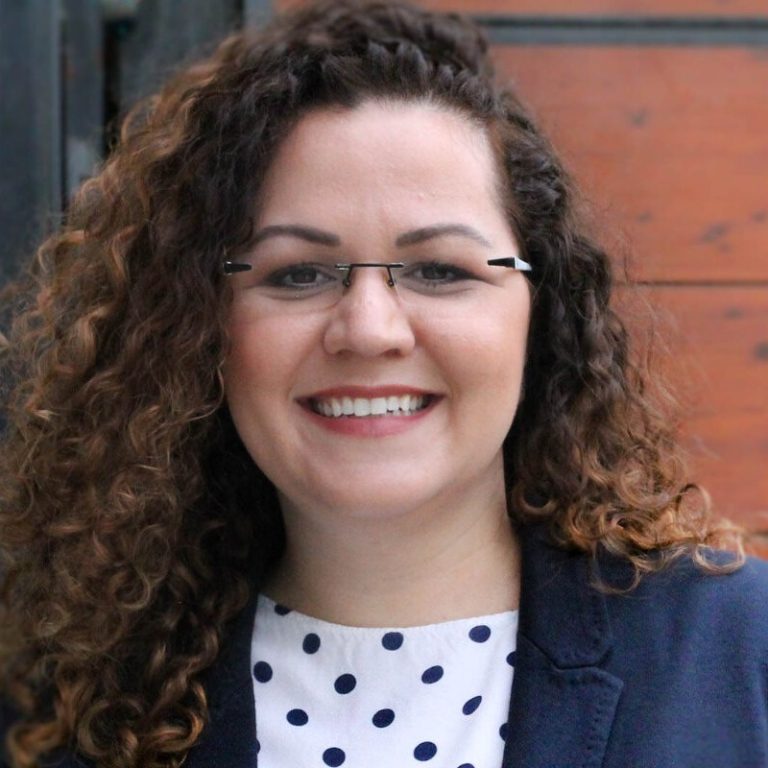How to create pathways for new talent with AI
Julia Maria Carvalho, group HRIS manager at Alstom, tells UNLEASH about the connection between talent and AI.
Why You Should Care
Discover how your HR systems can transform talent development.
Julia Maria Carvalho, group HRIS manager at Alstom, discusses the importance of investing in AI before it's too late.
Multinational rolling stock manufacturer Alstom has been busy. With the acquisition of Bombardier Transportation in January 2021, the company took on 35,000 employees and a series of new challenges.
Mergers have been a challenge for even the most competent companies, and UNLEASH was keen to discuss the progress Alstom has made.
Julia Maria Carvalho, group HRIS (human resources information systems) manager at Alstom, discusses the challenges the company has faced, how it approaches recruitment, and the technology that is enabling tangible development.
Attracting talent
Carvalho candidly assesses the working world during the ‘Great Resignation‘.
Despite having a very low rate of attrition, Alstom has positions to fill. In order to do this, the company is taking a multi-pronged approach.
Carvalho explains: “We are investing a lot on the employer brand. So advertising all the benefits we have; we are working to be considered top employer, and showcase the good things that we have.”
With a focus on benefits in mind, the company attends conferences and is working with universities to attract young talent who support the companies mission.

Julia Maria Carvalho, group HRIS manager at Alstom
The need to showcase the positives is needed because trains and transport can at times be considered a conservative and slow industry, while acknowledging this perception, Carvalho champions the innovative work of Alstom.
Carvalho notes that Alstom has put in place the first train moved by hydrogen in Germany and has a focus on “hiring a lot of software engineers and data scientists to support us improving our digital portfolio.”
She adds that Alstom’s transport products are “More environmentally friendly, because we do not have the same level of pollution as cars, so we’re really into a more sustainable market. So our product can have direct purpose to benefit the world. This is a very attractive factor of Alstom as we are building a more sustainable world.”
Alstom offers many benefits, and one of them includes the possibility to move around the world as it operates in 70 countries. Carvalho notes that Alstom has a “strong international mobility department in HR” that allows young staff to travel globally.
The company is currently hiring 7,500 employees while advertising these benefits.
Developing employees at Alstom
Once Alstom manages to find promising talent, it aims to keep them. Carvalho was king of enough to share with UNLEASH a new career solution with Cornerstone that she has implemented.
This has been put in place “in order to make your own roadmap for the future, see your competence gaps and make your own learning path” comments Carvalho.
She adds: “You don’t need to make a learning path that is connected directly to your job, generally that is what are doing.” Instead, Alstom enables employees to record the competencies they have in their current role, and see what needs to be developed for the next one.
Going into further detail, Carvalho explains: “We have a system that has all the positions that we have today, and our artificial intelligence (AI) is directly connected to our HRIS. As a result, every time we have a new type of position that is open or a new job description, it’s there.”
This means staff can “put their CV in the system, look at the courses that they have done, and check possibilities of a career that will bring even non-obvious movement.”
By having a good assessment of the competencies an employee can plan their development and begin actioning towards the position they want.
Carvalho discusses supporting this training: “Alstom is there for you to support you to get where you want to do so and the career pathway is amazing.”
This feedback is partly so positive because the technology enables people to be dynamic with their career choices rather than static.
In a rejection of static careers, Carvalho claims: “ You move from competence to competence, which competence you have today, what competency you have tomorrow, what competence does this job have? And you move like this, you don’t move by job title or move by the level of responsibility inside your own box.”
The future at Alstom
Looking ahead, Carvalho notes that artificial intelligence is not only essential now, but will become more important in the future.
Carvalho says: “We need to have tools that have artificial intelligence connecting our information that are in different places.
“What we have done, for example, for the [aforementioned] competence tool that we put in place to make the career paths, is that we have that data coming from HR is that the coming from the competence assessment, from the job descriptions, from the open positions, and the possibility of the employees to bring their LinkedIn profile inside.”
Carvalho adds the importance of unifying data through AI: ”We have the same information in different places, but without artificial intelligence is huge, almost impossible for a human being.
“To connect everything, we’re going to have a database of more than 2000 skills […] if we wait for a human person or human team to do this job of connecting the dots, at the moment they finish it, they are going to be outdated.”
On top of that, Carvalho points to how AI can screen CVs and rationalize information. As a result, she concludes: “HR who does not use artificial intelligence to support their processes, they’re going to be left behind.”
Sign up to the UNLEASH Newsletter
Get the Editor’s picks of the week delivered straight to your inbox!

Senior Journalist
Dan combines his first-hand experience alongside the latest news and opinions in the HR Technology space.
